
Rewiring the Heart: Evolution in Pacemaker Innovation

Dr. Pradeep Kumar D

5 Min Read
Feb 20, 2025

Book Appointments &Health Checkup Packages

Book Appointments &Health Checkup Packages





In matters of the heart, ours is one of the largest cardiac speciality centres of excellence in India offering comprehensive heart care, diagnostics and treatment including minimal invasive procedures under one roof.

Our superlative cardiac experts handle the most delicate of cardiac cases across all ages In Best Heart Hospital in India also known for Best Cardiology Hospital in India ,Their range of treatment expertise includes the entire spectrum of cardiac conditions including congenital heart disease, coronary artery disease, heart rhythm disorders, disorders of heart failure, and valvular disease. Best in their speciality, our team of eminent echo cardiologists, electrophysiologists, interventional cardiologists, radiologists and cardiovascular surgeons are skilled in treating the most challenging of heart conditions including paediatric surgeries even in the newborn.
TMT or Tread Mill Test or Stress Test or Exercise Test measures how well the heart works when it is beating fast and working hard. A stress test helps doctors see if the heart is getting enough blood during these times.
An echocardiogram is an ultrasound of the heart. It uses standard 2D, 3D and Doppler ultrasound to create images of the heart. The test does not involve any radiation.
An X-ray imaging test is done to see if there are any restrictions in blood flow going to your heart. This is the most common test to help doctors diagnose heart conditions. During coronary angiography, a small catheter or tube is inserted through the skin into an artery in the groin or the Hand. Through a special x-ray viewing instrument, the catheter…
Commonly known as bypass surgery, this is a procedure done to restore blood flow in a narrow or blocked artery. The procedure is an open heart surgery that requires a large incision to be made to access the chest cavity. The surgeon takes out a blood vessel from one part of your body and uses to divert blood flow away from the blocked coronary artery…
An ECG or Electrocardiogram is a simple, non-invasive procedure that records heart rate and its rhythms. ECG is done to look or check for known heart conditions or how healthy the heart is before or after surgery.
A Holter monitor is a small, wearable, ambulatory electrocardiography device that keeps track of heart rhythms and records all heartbeats.
Coronary angioplasty is routinely done to open clogged heart arteries. It can improve symptoms such as chest pain and shortness of breath. Angioplasty is also often used during a heart attack to quickly open a blocked artery and reduce the amount of damage to your heart. It involves inserting and inflating a tiny balloon into the spot where your artery…
This is a non-surgical procedure that is used to treat coronary arteries for stenosis. It is a combination of angioplasty & stenting that widens narrowed and blocked coronary arteries and restores blood flow from the heart. In cases of acute heart attacks (Myocardial Infarctions), PCI is used as an emergency treatment. PCI is considered to be an alternative…
Percutaneous coronary intervention (PCI) is a minimally invasive procedure to open blocked coronary arteries allowing unobstructed blood flow to the heart. This procedure is performed under local anaesthesia and uses X-ray to help the cardiologist view the site of your blocked artery. An intravenous (IV) line will be inserted in your arm and you will…
A cardiac device helps control irregular heartbeats to protect against heart rhythm disorders. One of the most commonly used cardiac devices is a pacemaker, which produces electrical stimuli to the heart to help it maintain rhythm. An Implantable Cardioverter Defibrillator (ICD) is used to assist the heart's ventricles to restore their capacity after…
This is a procedure that involves the opening of the chest cavity and creating a bypass system that allows blood to pump through your body without going through the heart. During open heart surgery, the heart is stopped for a period of time until surgical procedures or investigations can be completed. Once the surgical objective has been achieved,…
The treatment of heart disorders in children requires specialized equipment and knowledge.
Manipal Hospitals’ Cardiac Unit boasts of futuristic diagnostic and testing machinery that combines advanced technology and high precision tools to present the most complex of cases with accuracy. Typical cardiac tests reveal the extent of the damage done to the coronary arteries, helping our cardiologists to plan the appropriate and most effective…
An electrophysiology test reveals how electrical signals move through your heart. When these signals show normal movements, your heartbeat is regular. When these signals are abnormal, your heartbeat is irregular and this is called an arrhythmia. Radiofrequency ablation (RA) is the procedure to treat some types of arrhythmias. Together it takes about…
Using specialized cardiac MRI's, a cardiologist evaluates hemodynamic changes in the body to identify congenital heart disease. Identifying congenital heart defects at an early stage is crucial to improving the life expectancy and quality of life of patients.
Transcatheter Aortic Valve Implantation (TAVI). The aortic valve controls the blood flow from your heart to the rest of the organs. TAVI is a minimal invasive procedure to replace your damaged or diseased aortic valve with a new man-made one using a narrow tube called a catheter. This is inserted into a large blood vessel in your groin or chest.
For children suffering from narrowing or blockage in the aortic valve, the best treatment option is balloon dilation. The treatment is minimally invasive, reducing the discomfort and recovery time for the patient. A deflated balloon is attached to a thin tube known as a catheter which is navigated to the narrowed artery, where it is inflated, opening…
The heart’s two lower chambers are the ventricles and the right ventricle pumps blood to the lungs. It connects to the pulmonary artery, the main blood vessel leading to the lungs. Between the right ventricle and the pulmonary artery is the pulmonary valve, one of the heart’s four valves. In a normal heart, the pulmonary valve opens fully when the…
The mitral valve is a valve with two flaps in the heart that lies between the left atrium and the left ventricle. Sometimes, the valves don't open or close properly, disrupting the blood flow through your heart to your body and also causes blood to leak backward to the left atrium. The valve may also be narrowed. Balloon Mitral Valvuloplasty is a procedure…
Adult congenital heart disease (ACHD) Congenital heart disorders are the most common type of birth defect. These can range from simple ones with no symptoms to complex types which are severe and life-threatening such as a hole in the heart that causes blood from the left and right sides of the heart to mix, or even a narrowed valve that blocks blood…
Ventricular septal defects (VSD) are located between the lower chambers or ventricles of the heart which pump blood to the body. Ventricular septal defects can be located in several different sections of the wall between the lower chambers of the heart.
PDA is an unclosed hole in the aorta, the main artery that carries blood away from your heart. In a normal heart, its left side pumps blood only to the body while the right pumps blood to the lungs. If you have PDA, extra blood gets pumped from your body artery or aorta into the lung (pulmonary) arteries. If the PDA is large, the extra blood being…
This condition occurs when arteries and veins have abnormal connections between them. Pulmonary AVMs act as direct conduits between the pulmonary artery and the pulmonary vein, which reduces blood oxygen levels, and also allows clots and bacteria to bypass the normal filtration process of the lung capillaries. Pulmonary AVMs are prone to rupturing,…
The automated implantable cardioverter-defibrillator (AICD) is a tiny electronic device that is implanted in the chest to prevent sudden death from cardiac arrest caused due to fast heart rhythms called tachycardias. The surgery involves inserting insulated wires into the veins near your collarbone and moving them through X-ray images, to your heart.…
CRT is prescribed for patients with heart failure or arrhythmia (irregular heart beat). There are two types of CRT devices – one is the biventricular pacemaker and the other is the same device which includes a built-in implantable cardioverter defibrillator and is called a cardiac resynchronization therapy defibrillator (CRT-D).
Knowing your baby is growing normally and safely in your womb is one of the happiest phases for a mother-to-be. Routine tests for you and your baby can ensure all is going well. If your gynaecologist detects an abnormal heart beat or any other conditions in the foetus, she may recommend a foetal echocardiogram.

The Adult cardiology treatments and services include Coronary angiogram and angioplasty (radial and femoral), Emergency Percutaneous Coronary Intervention (PCI), Complex coronary interventions (Left main, bifurcation, chronic total occlusion, rotaablation), Coronary lesion physiological assessment and imaging (FFR, IVUS, OCT), Electrophysiological Radio Ablation including 3D ablation, Structural heart disease intervention including Transaortic valve implantation, Left Atrial Appendage closures, Balloon Mitral Valvotomy, Balloon pulmonary valvotomy, Adult congenital heart disease interventions including atrial septal defect closure, ventricular septal defect closure, PDA device closures, pulmonary AVM closures, Peripheral angiogram and angioplasty and cardiac device implantation including pacemaker, ICD implantation and CRT implantation.
The Paediatric Cardiology treatments and services include:
Manipal Hospitals' cardiologists and cardiovascular surgeons believe in precise diagnosis for effective treatment. The faculty includes - Expert echo cardiologists - Electro physiologists - Interventional cardiologists and radiologists
Patients visit the Cardiology department at Manipal Hospitals India for expert diagnosis, advanced treatment, and personalized care. The department specializes in managing TMT - Tread Mill Test, Echocardiogram, Coronary angiogram, Coronary Artery Bypass Graft Surgery, ECG, Holter Procedure, Coronary angioplasty through Radial approach and Femoral approach, Emergency Percutaneous Coronary Intervention (PCI), Emergency Percutaneous Coronary Intervention PCI, Cardiac Device Implantation, Open Heart Surgery, Paediatric Cardiology, Coronary lesion physiological assessment and imaging, Electrophysiological Radio Ablation ERA including 3D ablation, Hemodynamic Evaluation of Complex Congenital Heart Diseases, Structural heart disease intervention including Transaortic valve implantation Left Atrial Appendage closures Balloon Mitral Valvotomy Balloon pulmonary valvotomy, Balloon Dilation of Stenotic Valve, Balloon Pulmonary Valvotomy, Balloon Mitral Valvotomy, Adult congenital heart disease interventions including atrial septal defect closure ventricular septal defect closure PDA device closures pulmonary AVM closures, Ventricular Septal Defect VSD Closure, Patent Ductus Arteriosus PDA Device Closure, Pulmonary Arteriovenous Malformation AVM Closure, Automated Cardioverter Defibrillator ICD Implantation, Cardiac Resynchronization Therapy CRT and CRTD implantation, Paediatric Cardiology treatments, ensuring world-class medical support for patients.
The Cardiology department at Manipal Hospitals India provides a wide range of treatments, including:
To book an appointment with a Cardiology expert at Manipal Hospitals India, please call 1800 102 5555. Our dedicated team will assist you in scheduling a convenient consultation.
The Cardiology department is led by highly qualified specialists, including:
For your initial consultation at Manipal Hospitals India, please bring:
Providing these documents will help our specialists ensure a comprehensive diagnosis and personalized treatment plan.
Manipal Hospitals India is a preferred choice for Cardiology due to:
We are committed to providing world-class healthcare with compassionate service.
At Manipal Hospitals India, we offer facilities such as:
Manipal Hospitals' cardiologists and cardiovascular surgeons believe in precise diagnosis for effective treatment. The faculty includes - Expert echo cardiologists - Electro physiologists - Interventional cardiologists and radiologists
Our team ensures precise diagnosis and treatment planning for each patient.
Our superlative cardiac experts handle the most delicate of cardiac cases across all ages In Best Heart Hospital in India also known for Best Cardiology Hospital in India ,Their range of treatment expertise includes the entire spectrum of cardiac conditions including congenital heart disease, coronary artery disease, heart rhythm disorders, disorders of heart failure, and valvular disease. Best in their speciality, our team of eminent echo cardiologists, electrophysiologists, interventional cardiologists, radiologists and cardiovascular surgeons are skilled in treating the most challenging of heart conditions including paediatric surgeries even in the newborn.
After gathering general information about the patient's health from our cardiologist will review the patient's medical history, and do a complete physical examination. Then the doctor might order the necessary investigations to determine the health of your heart.
Cholesterol, Hypertension, Obesity, Diabetes, Smoking, Family history of heart disease
Mild discomfort or pain in the chest area, it may radiate to the neck, jaw, or arm on the left side of the body and is usually associated with shortness of breath, nausea, and sweating. Diabetics and women may not have chest discomfort but may have only a few of the associated symptoms.
Some illnesses can cause heart disease, but a majority of heart diseases can be prevented by adopting a healthy lifestyle.
Yes, a yearly health check-up that includes a blood pressure check, lipid, and cholesterol test and a discussion with your doctor about other risk factors should not be overlooked.
Manipal Hospital is a multidisciplinary heart hospital where you will have access to all possible range of solutions from experienced doctors, nurses and trained medical staff. Our heart specialists, heart surgeons, nurses work as a team to provide the highest level of patient care. Our cardiologists offer the latest medications and interventional heart disease procedure to provide better heart care results to our patients.
The different heart conditions that a cardiologist can treat are:
Atherosclerosis
Atrial fibrillation
Arrhythmias
Congenital heart disease
Coronary heart disease
Congestive heart disease
Hypertension
Pericarditis
Ventricular tachycardia
High blood pressure
Heart attacks
Heart failure
Heart transplantation
Chest pain and angina
Pulmonary hypertension
Ventricular tachycardia
Symptoms of heart diseases may be different for men and women. For example, men are more likely to have chest pain, women are more likely to have other symptoms along with chest pain such as shortness of breath, nausea and extreme fatigue.
Other symptoms include:
Chest tightness
Pain
Pain in the neck, jaw, throat, upper abdomen or back
Weakness or coldness in legs or arms
The symptoms of a heart attack include:
Squeezing or aching sensation in the chest
Shortness of breath
Cold sweat
Fatigue
Lightheadedness or sudden dizziness
The first year after a heart transplant is very critical. People who have a heart transplant are monitored very closely by heart specialists for any infection or rejection. But after one year a life expectancy of a transplant without any complications tends to rise. Statistics says that people live for around 11-14 years after a transplant.
There are a few things you can do to prevent a heart attack:
Avoid smoke
Control your blood pressure and cholesterol levels
Go for regular medical checkups to check for blood pressure, cholesterol and diabetes
Exercise regularly
Maintain a healthy weight
Control stress
Avoid alcohol
Eat lean proteins, such as fish and beans, fruits and vegetables and whole grains
A cardiologist does not perform heart surgery, they just perform some tests and procedures which include:
Assessing the patient’s heart and cardiovascular health
Interpreting the results of EKGs and other tests
Referring patients to other specialists
Performing cardiac catheterizations
The interventional cardiologist uses a catheter (a small flexible tube) to repair damaged or weakened vessels, heart narrowed arteries or other affected parts of the heart. They are trained in performing advanced invasive procedures on the patients. The procedures performed by an interventional cardiologist include angioplasty and stenting, atherectomy, embolic protection, percutaneous valve repair, balloon angioplasty, etc.
For some patients, heart disease can be reversed or managed at the best heart hospital in Bangalore, with the help of lifestyle changes like:
Engaging in some sort of physical activity daily.
Following a healthy diet.
Controlling medical issues like high BP, high cholesterol, and type-1 and type-2 diabetes
Maintaining a healthy weight.
Get rid of smoking.
Stress management.
However, for advanced cases, lifestyle changes alone will not be enough to reverse the disease. In such instances, medical interventions like medications, and surgery may be essential to treat heart disease. Consult a famous heart specialist in Bangalore for advanced treatment.
There are numerous treatments for heart disease, including:
Adopting a healthy diet
Engaging in regular physical activity
Maintaining a healthy weight
Quitting smoking
Managing stress.
Different medications are used for treating heart disease like Aspirin
Beta-blockers - Calcium channel blockers, ACE inhibitors, etc.
Interventional Procedures:
Some interventional procedures include Angioplasty, Atherectomy, Coronary artery stenting, etc.
Some of the surgical procedures for heart issues include heart transplants, coronary artery bypass surgery, heart valve surgery, etc. Consult the best hospital for heart surgery in Bangalore like Manipal Hospitals.
_(1).jpg)
After suffering a heart attack, Mr. Ramesha Chandra Sharma was diagnosed with a 100% blockage during angiography. Thanks to the expert care of Dr. Sanjay Sharma, Consultant – CTVS, Manipal Hospital Ghaziabad,…
.jpg)
Mr. Sajjadul Amin, resident of Bangladesh, speaks about his mother's Valve Replacement Surgery which was performed under the supervision of Dr. Yugal Kishore Mishra. Watch the video to see what he has…
.jpg)
Watch the story of a 57-year-old patient from Basra, Iraq, who came out as a hearty fighter as she went through Minimally Invasive Surgery, performed by Dr. Yugal K Mishra, Head of Cardiac Sciences, at…
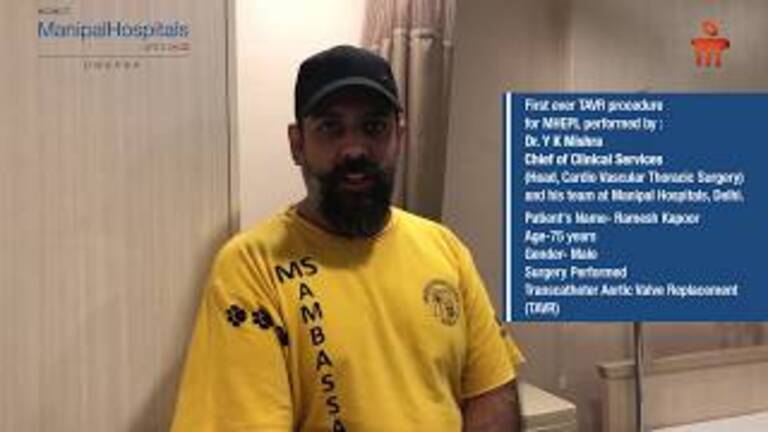
MHEPL conducted Transcatheter Aortic Valve Surgery at Manipal Hospitals, Delhi. The surgery was performed on a 75-year-old patient by Dr. Yugal Kishore Mishra and his team. Watch his son talk about the…
.jpg)
K. N Tripathi from Bhopal was out on a walk when he suddenly got a heart attack. His critical condition brought him to Dr. Yugal K Mishra (Head- Department of Cardiac Sciences) at Manipal Hospitals, Delhi.…
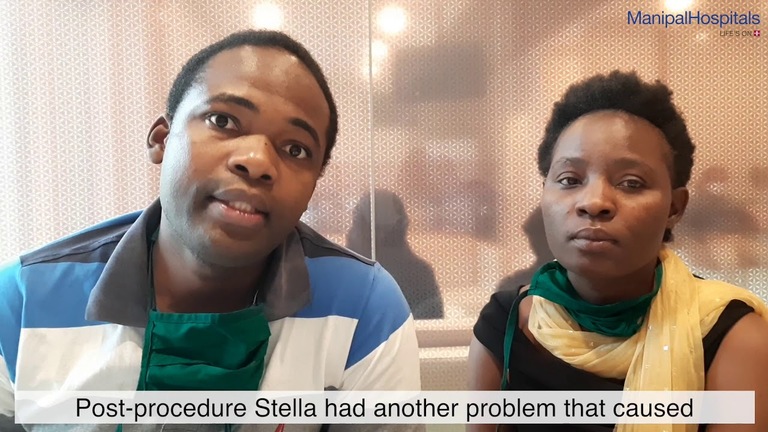
When Mrs. Stella Chimkondenji from Malawi, Africa suffered from low blood pressure, increased heart rate and difficulty breathing, she was referred to Manipal Hospitals, Old Airport Road, where under…
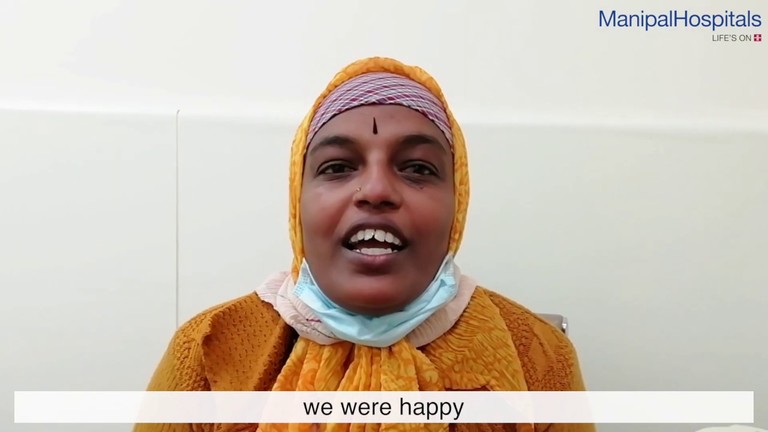
While diagnosing a complex pregnancy, it was revealed that the baby had a rare congenital heart ailment in the intrauterine stage called transposition of arteries, commonly called the blue baby syndrome.…
.jpg)
Retrieving data. Wait a few seconds and try to cut or copy again.
.jpg)
Meet Dr. Afsar Pasha, Consultant - Interventional Cardiology at Manipal Hospital Jayanagar. An experienced interventional cardiologist, Dr. Pasha is extensively trained in diagnosing and treating a wide…
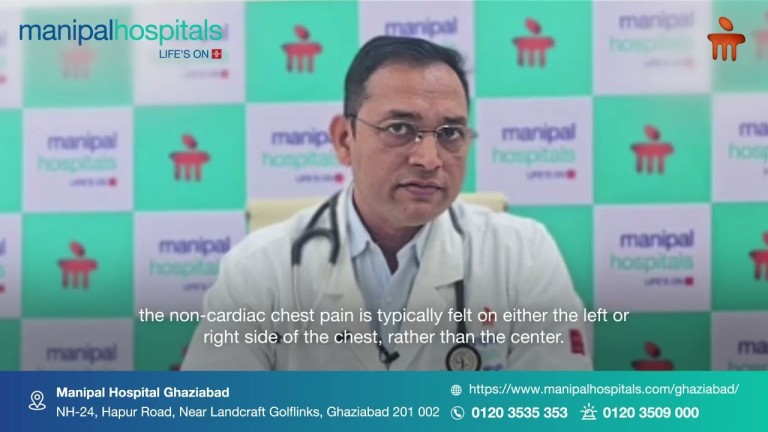
Don’t ignore chest pain — your heart could be asking for help. Understanding the difference between Cardiac Chest Pain and Non-Cardiac Chest Pain is crucial for timely and effective care. Dr. Bhupendra…
.jpg)
Meet Dr. Afsar Pasha, Consultant - Interventional Cardiology at Manipal Hospitals Jayanagar. An experienced interventional cardiologist, Dr. Pasha is extensively trained in diagnosing and treating a wide…
1.jpg)
Can you walk too much after knee replacement? Do imported implants work better than Indian ones? Dr. Bharat and Dr. Girisha bust these common myths and share what really matters for successful recovery.
.jpg)
Heart attacks are no longer limited to older adults. Dr. (Gp Capt) Ashish Chauhan, Consultant – Cardiology, Manipal Hospital Whitefield, explains how blockages in the coronary arteries can cause heart…
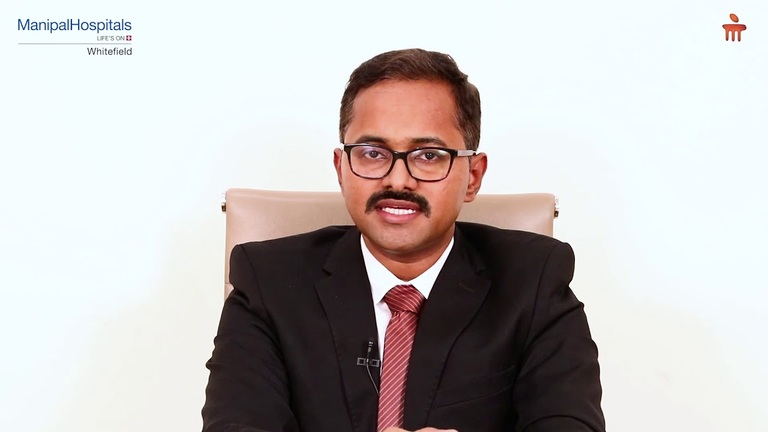
Prevention of Atrial Fibrillation (irregular or rapid heart rate) is possible by maintaining a healthy lifestyle, optimum body weight, a balanced diet and avoiding the use of stimulant medication - Dr.…
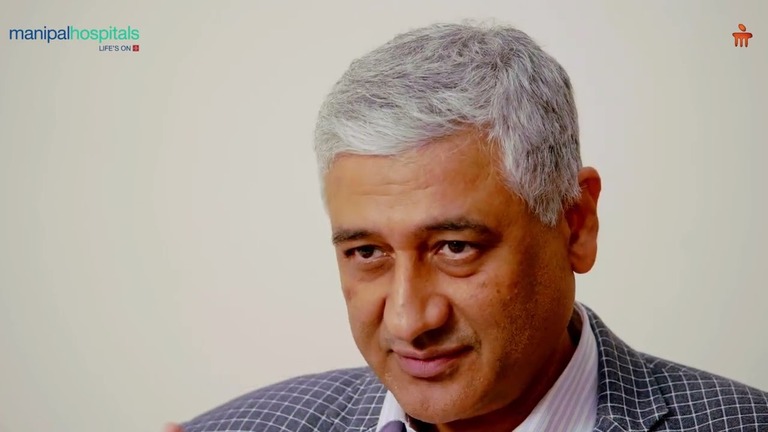
Can young people have heart attacks? Yes, young people can get heart attacks. In this must-watch video, Dr. (Gp Capt) Ashish Chauhan, Consultant – Cardiology at Manipal Hospital Whitefield, explains the…

Did you know that the heart works like a pump, and when it weakens, it leads to heart failure? Dr. (Gp Capt) Ashish Chauhan, Consultant – Cardiology at Manipal Hospital Whitefield, breaks it down for…
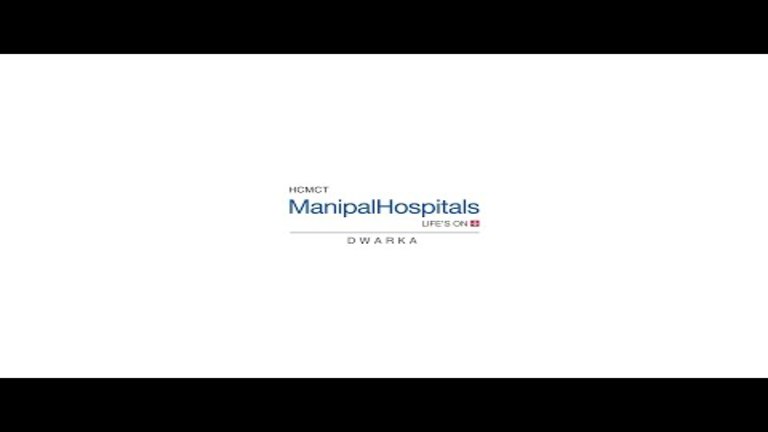
There are various electronic cardiac devices that are implanted in the human heart to help sustain and improve its function. Dr. Rajnish Sardana, Head of Pacing and Electrophysiology at Manipal Hospitals…
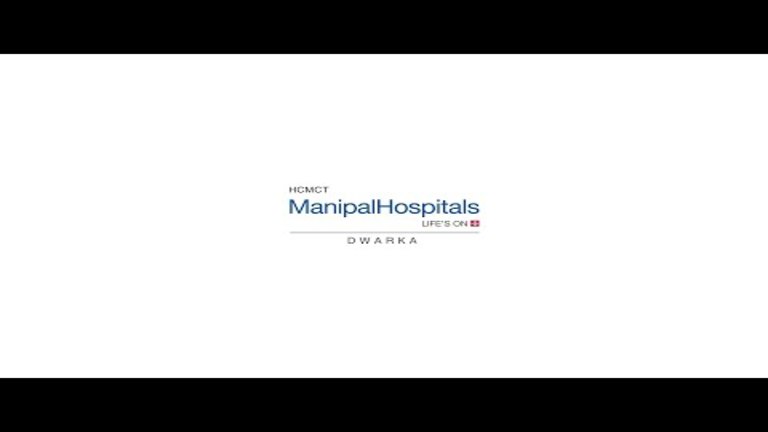
There have been multiple technological advancements in healthcare, in recent years. Pacemakers, essential electronic cardiac devices that help regulate heart function, have also undergone drastic advancements.…
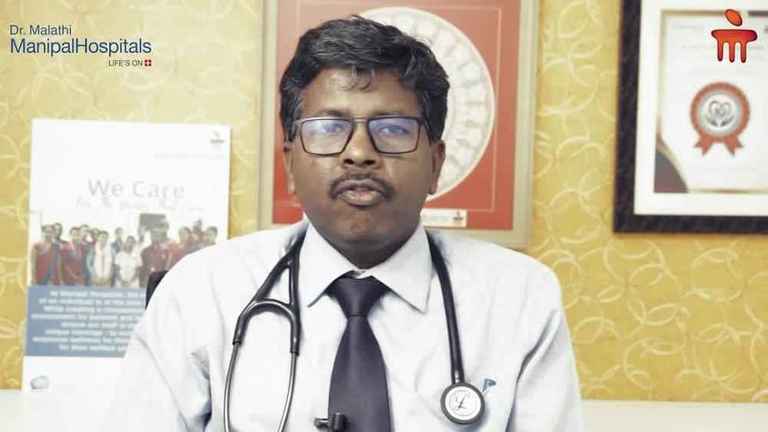
Dr. Balaraju D, Consultant Cardiologist at Manipal Hospitals Jayanagar talks to us about Hypertension and High Blood Pressure. He also goes on to highlight the main causes, how to diagnose hypertension,…
.jpg)
Heart problems can develop silently over time, often due to lifestyle factors and underlying conditions. In this video, Dr. Abhishek Singh, Consultant – Cardiology at Manipal Hospital Ghaziabad, explains…
.jpg)
In this informative video Dr. Sridhara G, Consultant – Interventional Cardiology and Electrophysiology at Manipal Hospital Old Airport Road, Bengaluru, introduces aortic valve degenerative disease as…
.jpg)
Continuing the discussion from the previous segment, Dr. Sridhara G, Consultant – Interventional Cardiology and Electrophysiology at Manipal Hospital Old Airport Road, Bengaluru, emphasizes how TAVI has…
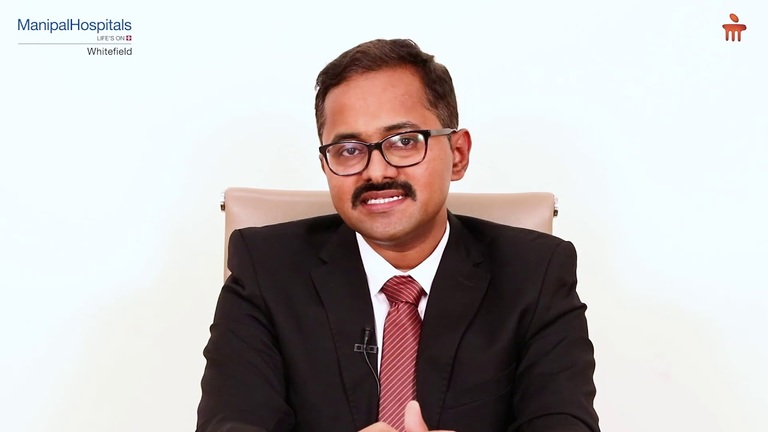
The very first step to be done when we have the symptoms is to call for help. Alert a family member of a colleague who can help you in this situation and then call an ambulance.'- Dr. Pradeep Haranahalli,…
_(2).jpg)
Sudden Death in the Young – Understanding the Causes Beyond Heart Attack . Continuing the discussion on Sudden Death in Young from the previous segment, Dr. Sridhara G, Consultant – Interventional Cardiology…
_(1).jpg)
In this informative video Dr. Sridhara G, Consultant – Interventional Cardiology and Electrophysiology at Manipal Hospital Old Airport Road, Bengaluru, addresses the rising incidence of sudden death among…
.jpg)
In the second segment, Dr. Sridhara G, Consultant – Interventional Cardiology and Electrophysiology at Manipal Hospital Old Airport Road, Bengaluru, outlines the available treatments for aortic valve…
.jpg)
While the heart conditions like cardiac arrest and heart attack are widely recognized, other age-related cardiac issues, such as aortic valve degeneration, are becoming increasingly significant. In a…
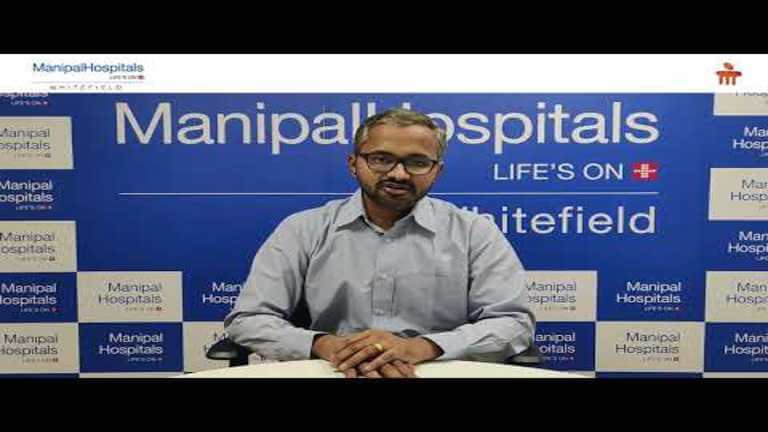
Dr. Pradeep Haranahalli, Cardiologist - Interventional Cardiology, Manipal Hospitals, Whitefield, spreads awareness on the most common causes and symptoms of heart failure while explaining the importance…
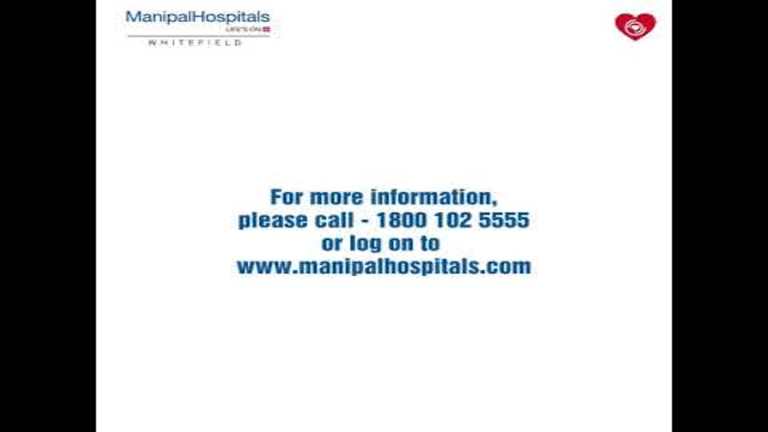
Dr. Sandesh Prabhu, Consultant - Cardiology & Electrophysiology and Dr. Mukundan Seshadri, Consultant - Cardio - Vascular And Thoracic Surgery, Manipal Hospitals Whitefield, speak about the importance…
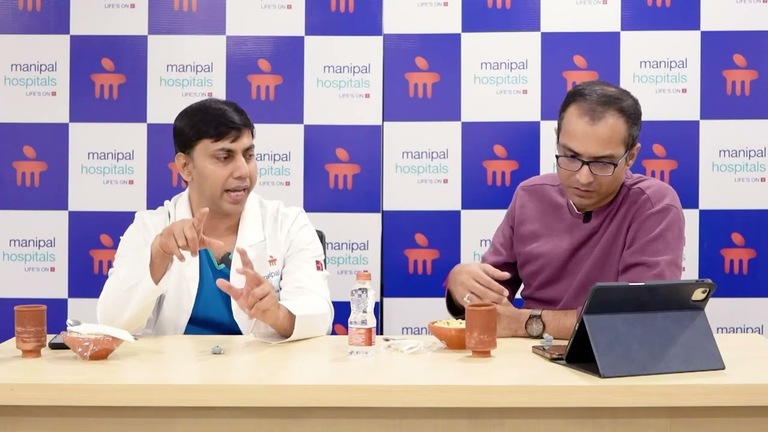
In this video, Dr. Soumya Patra, Consultant & Incharge - Cardiology, Manipal Hospital Mukundapur, talks about treatment options for heart disease. He also discusses angiography and angioplasty as treatment…
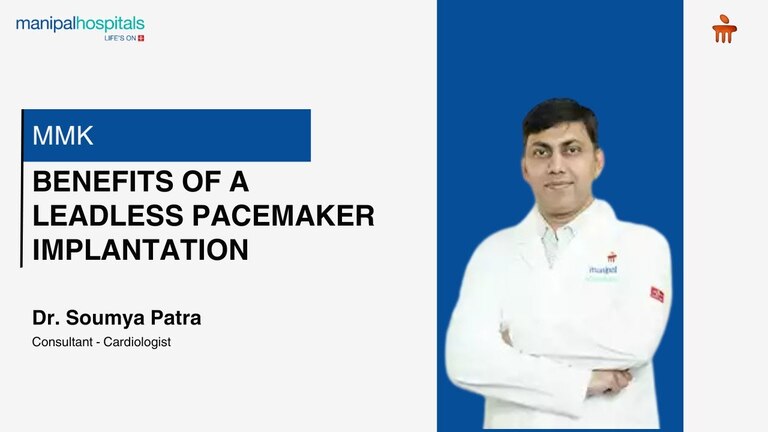
In this video, Dr. Soumya Patra, Consultant - Cardiologist at Manipal Hospital Mukundapur, sheds light on the benefits of Leadless Pacemaker Implantation—a groundbreaking procedure for better cardiac…
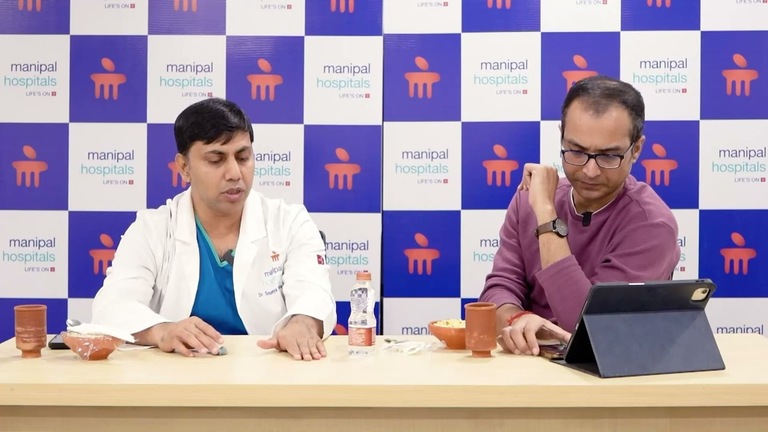
In this video, Dr. Soumya Patra, Consultant & Incharge - Cardiology, Manipal Hospital Mukundapur, talks about angiography. He also sheds light on CT angiography and Coronary angiography. Watch the video…
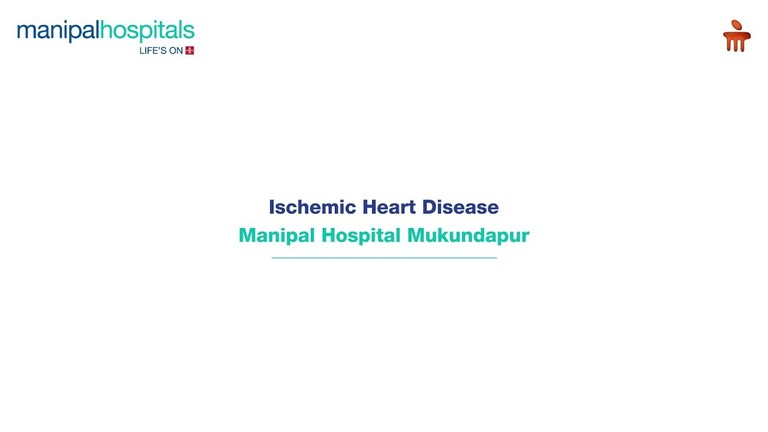
Dr. Soumya Patra, Consultant - Cardiology, Manipal Hospital Mukundapur, speaks about ischemic heart disease. He speaks about the rising cases of heart attacks among young adults and the various factors…
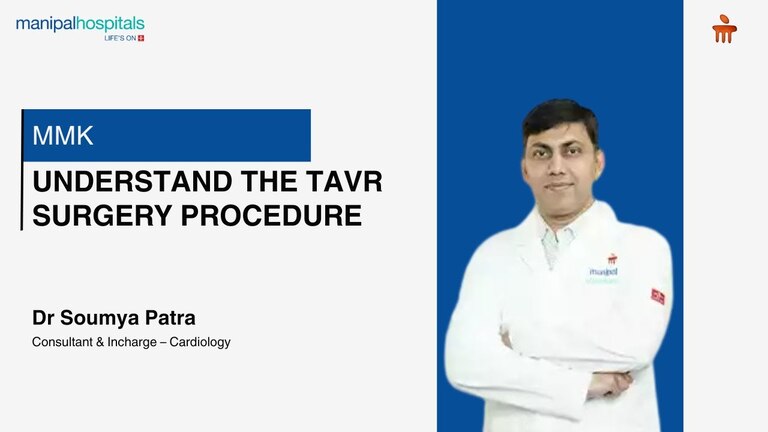
TAVR Surgery featuring Dr. Soumya Patra, Consultant & Incharge – Cardiology, at Manipal Hospital Mukundapur. In this insightful video, Dr. Soumya Patra discusses Transcatheter Aortic Valve Replacement…
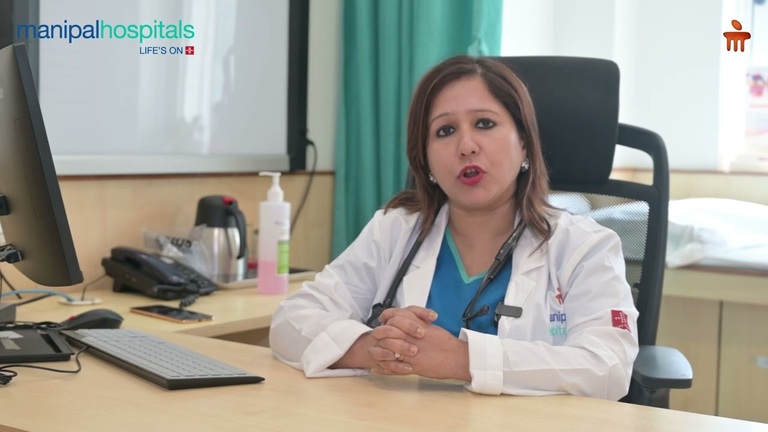
Summer heat can take a serious toll on heart health, especially for cardiac patients. In this video, Dr. Parijat Deb Choudhury, Consultant – Interventional Cardiologist, Manipal Hospital Mukundapur, explains…
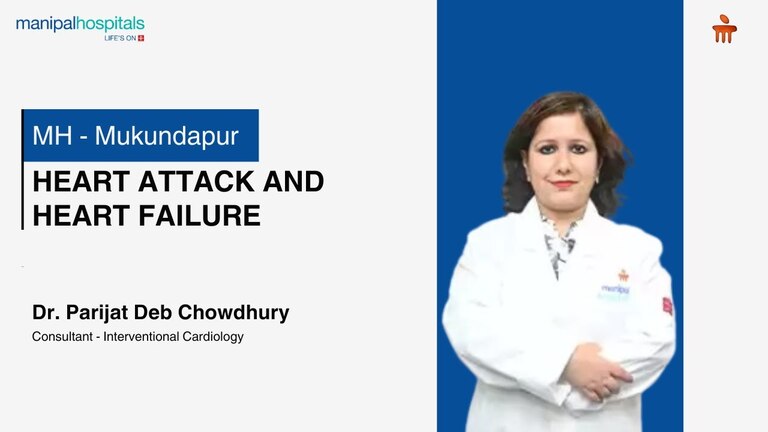
In this video, Dr. Parijat Deb Chowdhury, Consultant - Interventional Cardiology at Manipal Hospital Mukundapur, provides a comprehensive overview of heart attack and heart failure. She discusses the…
.jpg)
Manipal Hospitals, Delhi, has brought world-class technology in India to provide the best cardiac care to its patients. Along with the people of Delhi, this will benefit the heart patients across many…
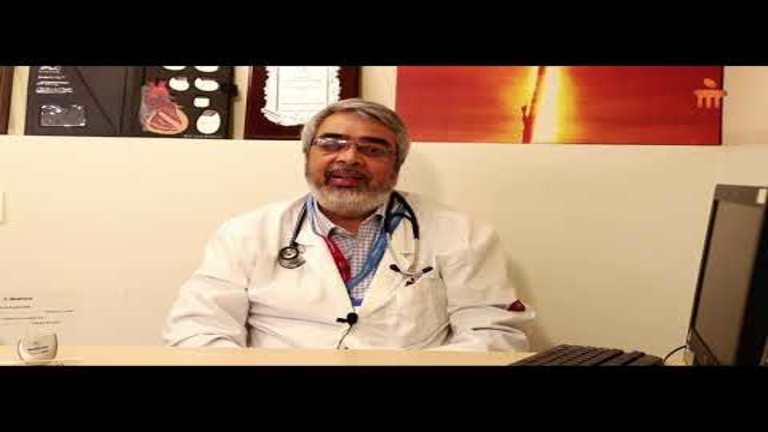
A lot of medications have come in, which have helped a lot in improving the outcome of heart failure. In the recent world, there's been a new addition of a medication that seems to be improving the symptoms…
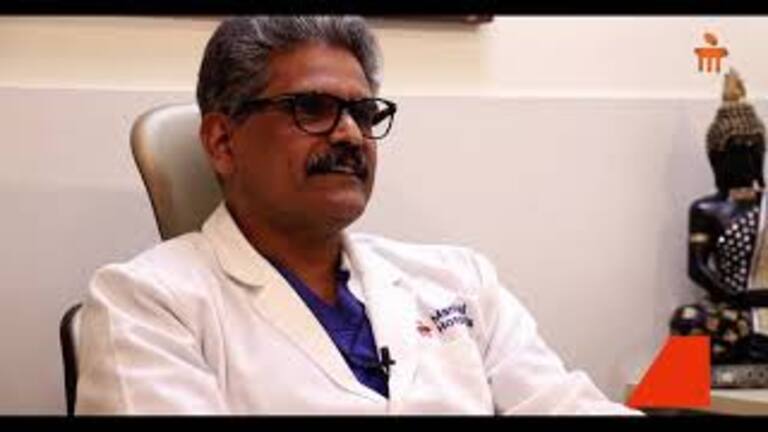
Watch Dr. Yugal K Mishra (Head of Cardiac Sciences) speak about types of Heart Surgeries, its procedures, outcomes, and educate about Minimally Invasive Cardiac Surgery, the procedure that the hospital…
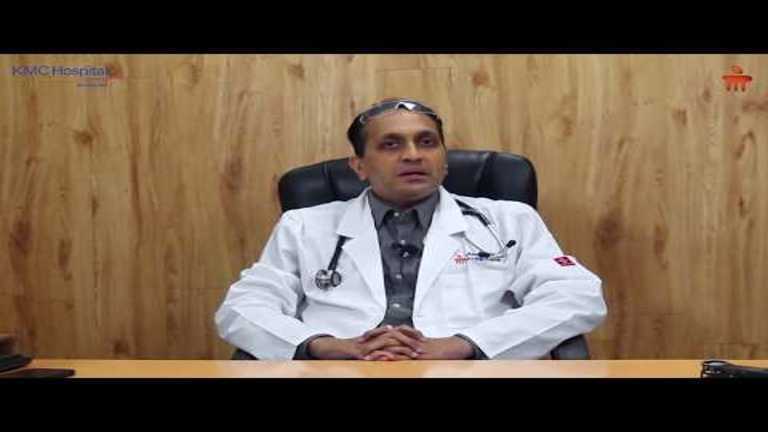
Watch Dr. Narasimha Pai, Consultant-Cardiologist, KMC Hospital, Mangaluru, throw light on coronary angioplasty, the process of the treatment and the ways to maintain a healthy heart.
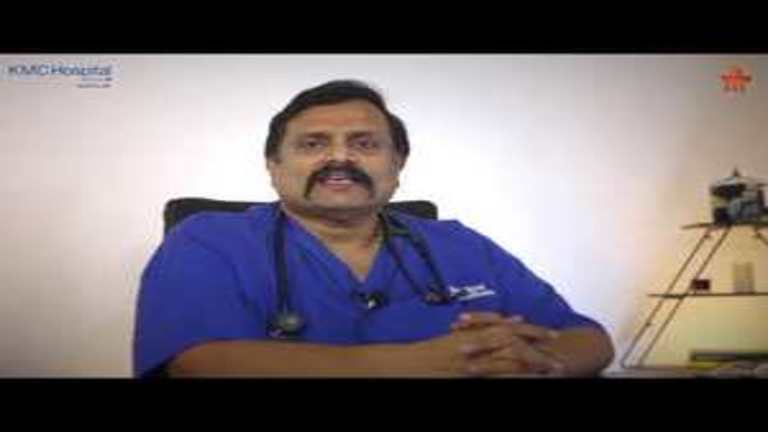
Dr. Rajesh Bhat, Consultant - Interventional Cardiologist, KMC Hospital Mangalore talks about structural heart disease interventions. The video throws light about its origin, characteristics and how improved…
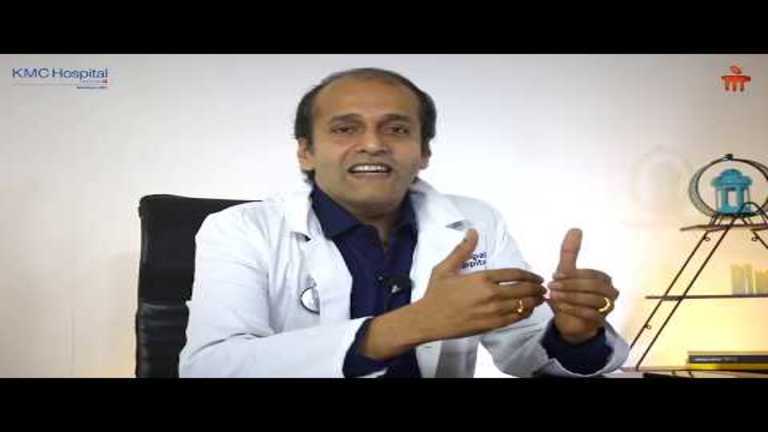
Dr. Padmanabh Kamat, Consultant - Interventional Cardiologist, KMC Hospital Mangalore talks about cardiac interventions and the importance of preventive cardiology. Early diagnosis is critical for any…
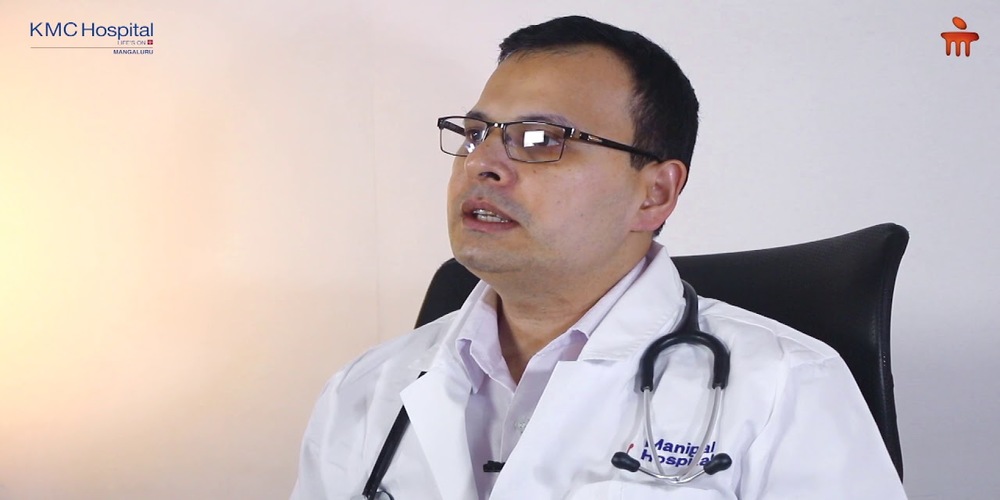
Dr. M Narayan Bhat | Symptoms and Risk factors of Heart Attacks | Manipal Hospitals India
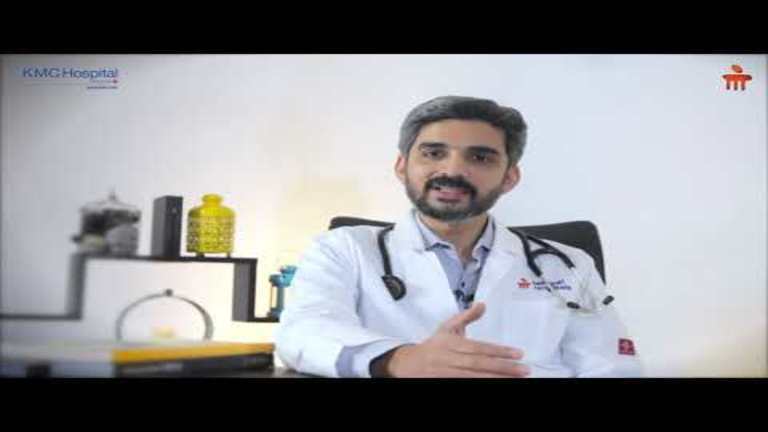
Dr. Maneesh Rai, Consultant - Cardiac Electrophysiologist, KMC Hospital Mangalore, talks about heart failure and its treatment. Speaking on Resynchronisation Therapy, which helps synchronise and normalise…
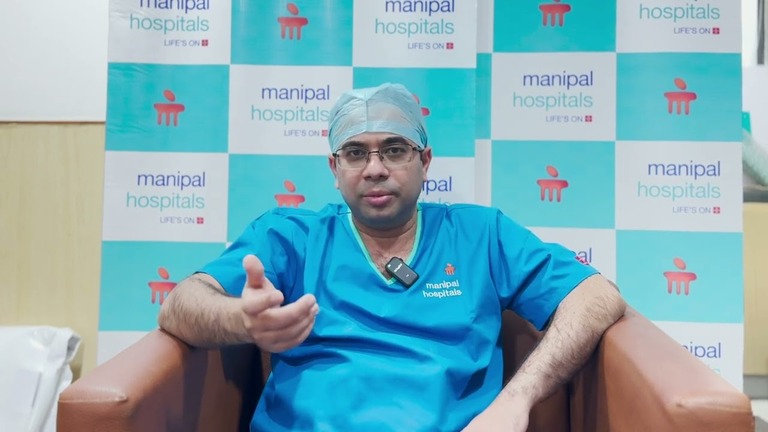
In this video, Dr. Sebabrata Jana, Consultant - Cardiology, talks about heart blockage. He also discusses methods for identifying heart blockage. Watch the video to learn more.
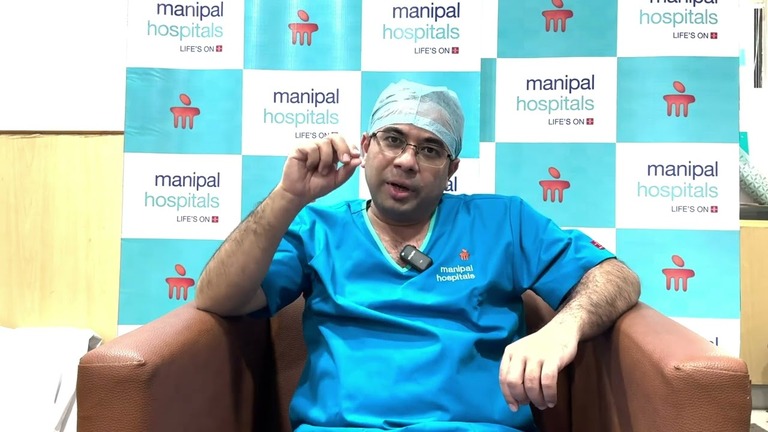
In this video, Dr. Sebabrata Jana, Consultant - Cardiology, talks about chest pain caused by heart blockage. He also discusses how to determine if chest pain is caused by heart blockage or is just normal…
.jpg)
In this video, Dr. Keshavamurthy CB, Chief Consultant Cardiologist at Manipal Hospital Mysuru, explains what happens during a heart attack and why chest pain should never be ignored. He urges those in…
.jpg)
In this video, Dr. Keshavamurthy CB, Chief Consultant Cardiologist at Manipal Hospital Mysuru, highlights the sharp rise in heart attacks among young Indians — with 99% of cases under 40 linked to smoking.…
.jpg)
In this video, Dr. Keshavamurthy CB, Chief Consultant Cardiologist at Manipal Hospital Mysuru, talks about the rising risk of heart attacks in young Indians — with 1 in 4 happening before the age of 40.…

Angiography is a crucial diagnostic procedure for heart-related concerns. Dr. Ranjan Kumar Sharma, Senior Consultant - Cardiologist, Manipal Hospital Saltlake, discusses when angiography becomes necessary…
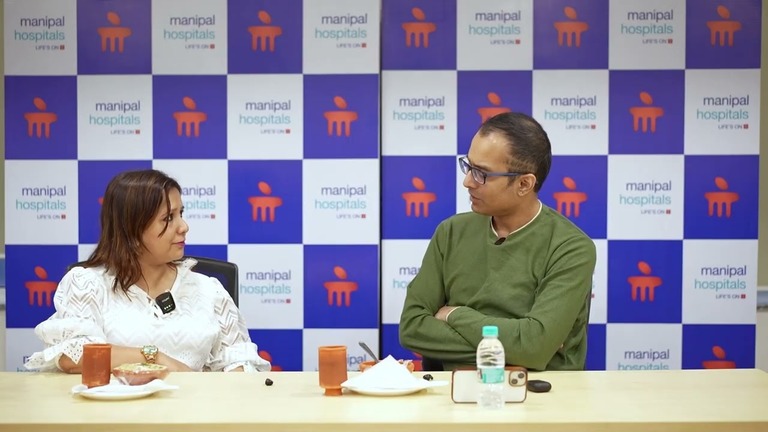
In this video, Dr. Parijat Deb Choudhury, Consultant - Interventional Cardiologist at Manipal Hospital Mukundapur, talks about heart health. She also explains the effects of excessive gym and heavy exercise.…
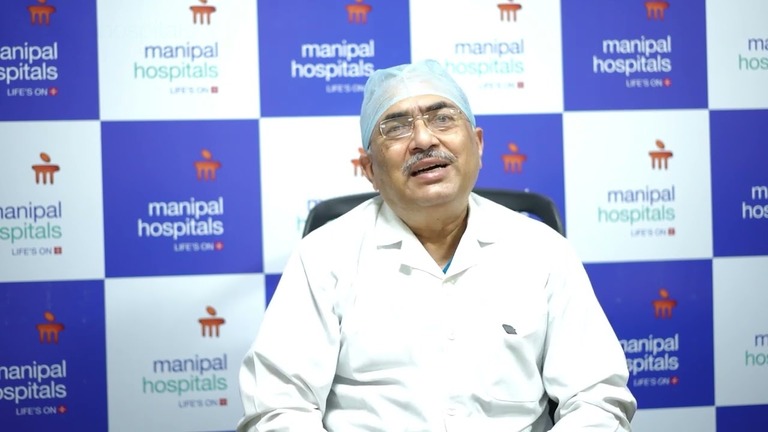
More women are having heart attacks, often without the classic symptoms. In the video, (Lt. Gen) Dr. Anup Banerji, Senior Consultant - Cardiac Sciences, Manipal Hospital Saltlake, talks about heart attacks…
.jpg)
Watch the demonstration video on emergency CPR to understand the procedure that can save the life of a victim who is in a critical condition. Cardiopulmonary Resuscitation (CPR) is an emergency procedure…
.jpg)
On the eve of World Heart Day, Manipal Hospital Malleshwaram organized a Cyclothon Rally that saw enthusiastic participation from over 120 cyclists, spreading the message, “Don’t Miss a Beat.” The event…
.jpg)
Today, Manipal Hospital Malleshwaram, proudly inaugurated state-of-the-art CATH Lab, reaffirming our commitment to timely, specialized cardiac care—especially for our beloved senior citizens. Graced by…
Home Specialities Cardiology



Visit the Global site for International patient services
